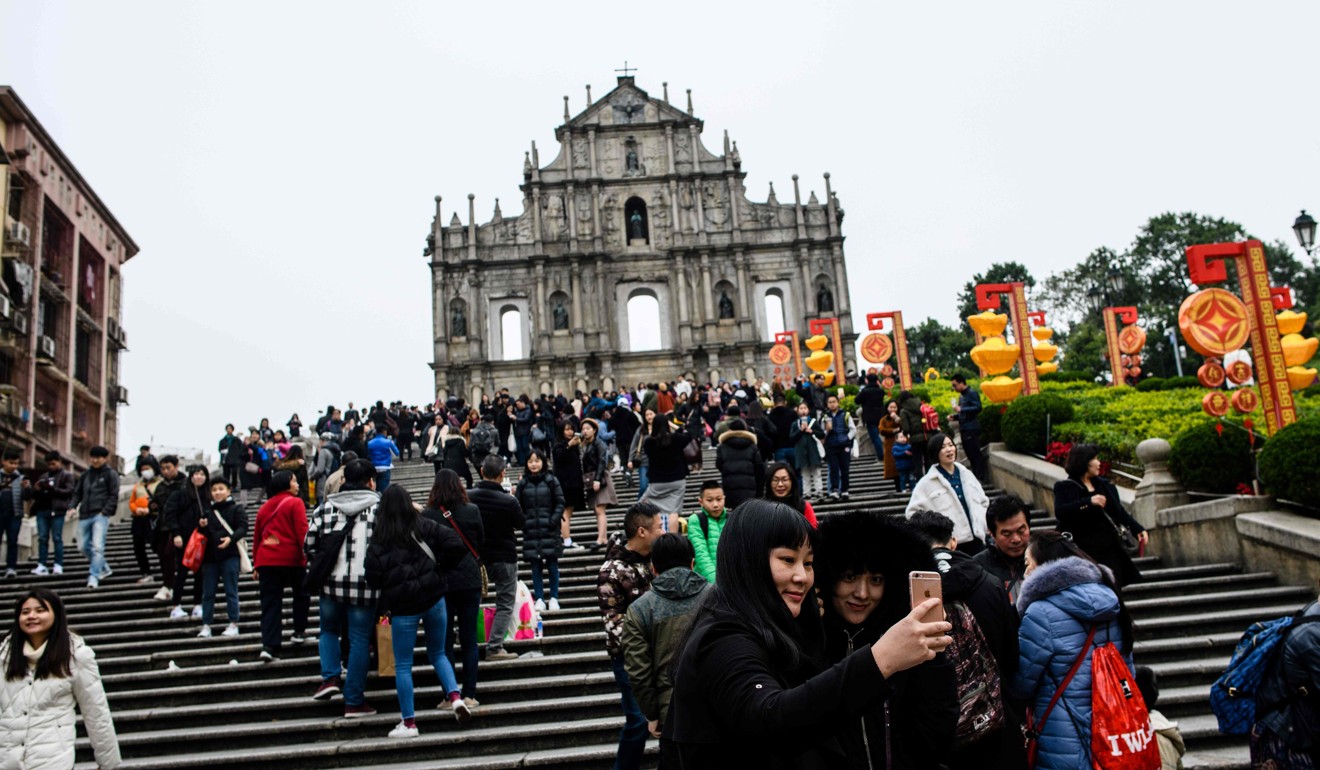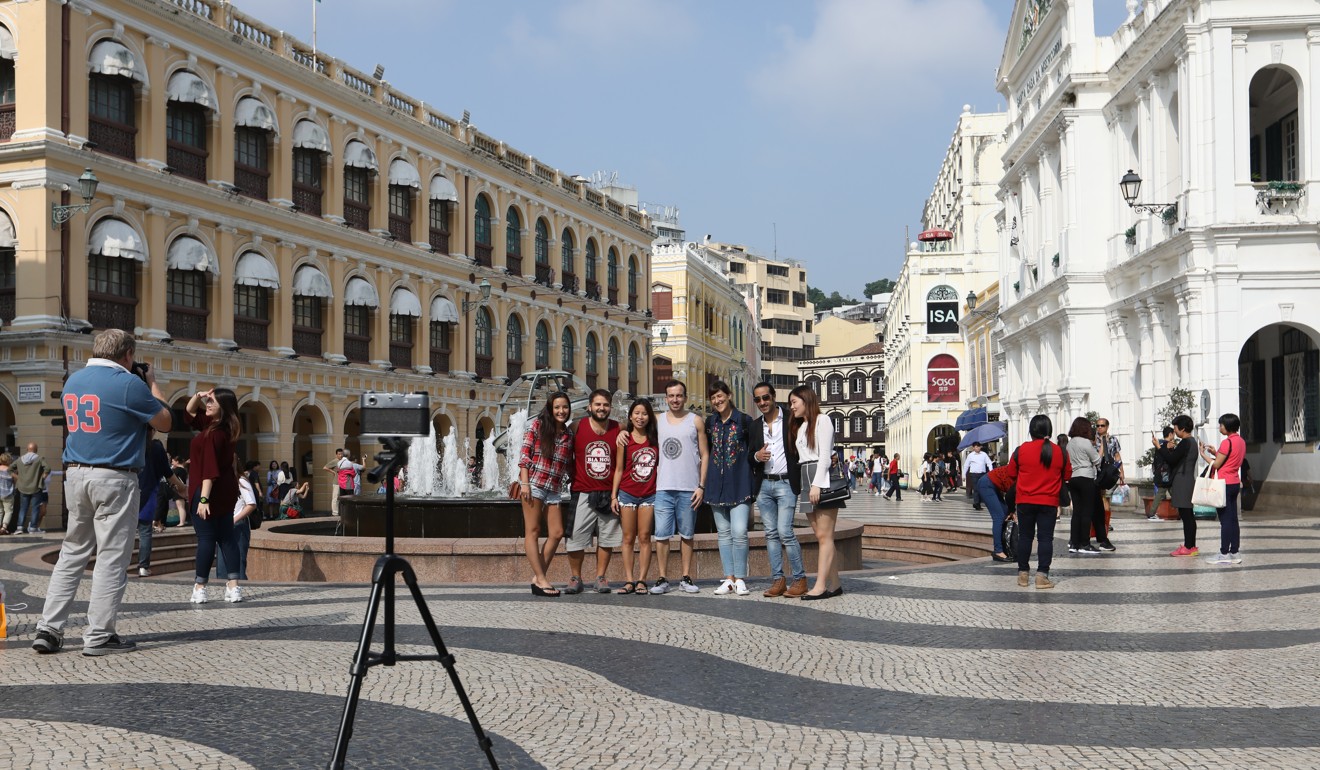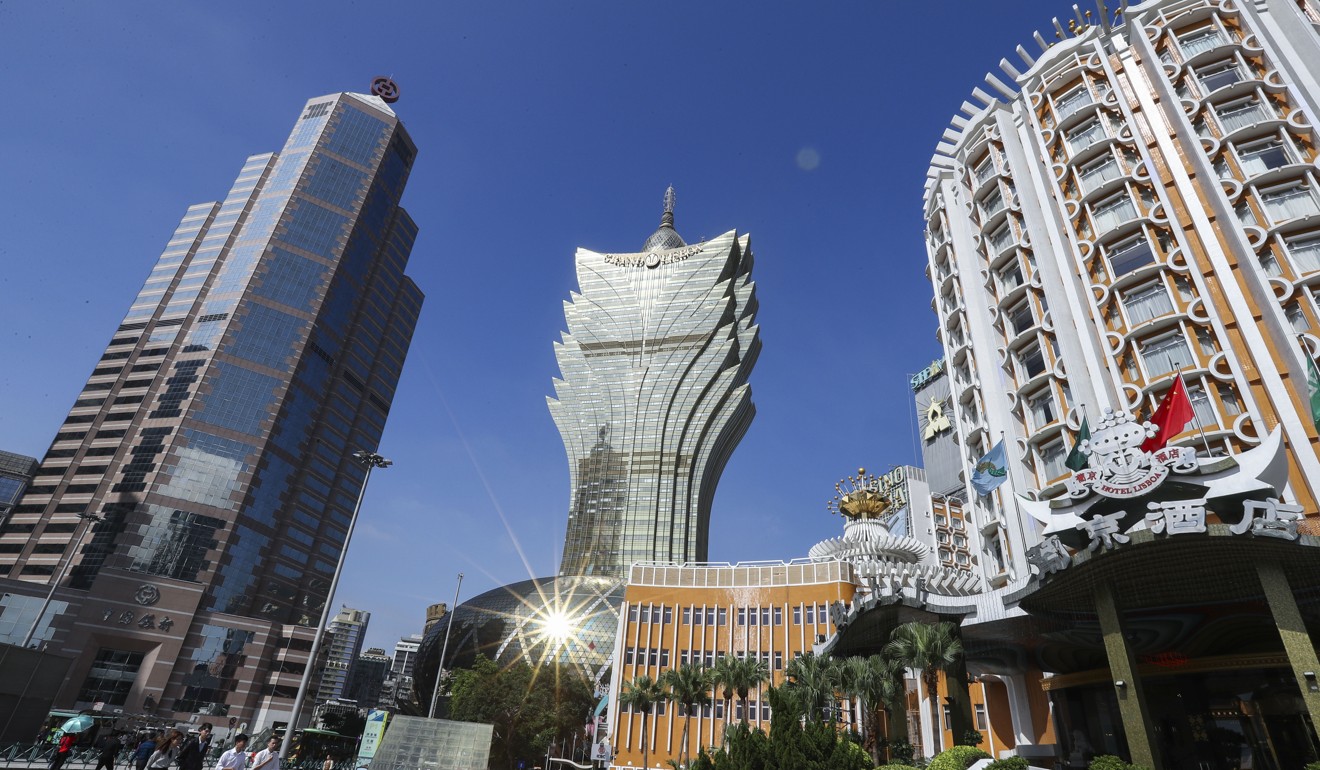
US-China trade war could push Macau’s growth below 4 per cent this year, IMF warns
- Macau’s economy has already been hit by slower Chinese growth and government efforts to crack down on VIP big-money gambling
- IMF recommends Macau develop into financial clearing centre for Portuguese-speaking countries like Brazil, Angola and Portugal

The escalating trade war between China and the United States could further dampen growth in Macau, the International Monetary Fund has said.
The gambling hub is already suffering from the slowdown in the mainland’s economy and efforts to curb big-money betting, but the trade war “has the potential to drag Macau SAR’s growth below our medium-term projection of about 4 per cent”, Mariana Colacelli, the IMF mission chief for Macau, said.
In a report released last Friday, the fund projected that Macau’s economy would grow 4.3 per cent this year, down from 4.7 per cent growth last year.
The new forecast is unchanged from one published in April but is below the projection of 5.3 per cent growth made in February.
The new forecast puts Macau’s growth further below the government’s target of 6 to 6.5 per cent for the mainland.

The IMF’s forecast was issued before the escalation in the US-China trade war in the last week, but even before that, the slowdown in China’s economy, combined with the government’s crackdown on VIP betting has had a clear impact on Macau’s gambling income.
Macau’s casino revenue fell 8.3 per cent in April from a year earlier, the biggest drop in almost three years, according to the data from the Gaming Inspection and Coordination Bureau.
“Economic growth for the Macau SAR is projected at slightly above 4 per cent for 2019 and 2020,” Colacelli said. “However, downside risks cloud this forecast.”
Investments by the three US casino operators in Macau may decline as a result of the trade war escalation and the city’s banking sector would also be hurt as a result, the IMF said.
The expiration of all six Macau gaming concessions in 2022 only adds to the uncertainty facing the territory.
“We anticipate that investment plans [of the US casino operators] will firm up once the uncertainty around the new gaming concessions is resolved,” Colacelli said.
To reduce Macau’s reliance on casino revenues, the IMF advised the former Portuguese enclave to consider developing its role as a clearing centre for Chinese yuan transactions with Portuguese-speaking countries, such as Brazil, Portugal and Angola.

“[That] can contribute to its financial sector development,” Colacelli said, noting that the city is also developing other financial services for China and the Lusophone world.
The financial sector currently accounts for only 6.3 per cent of Macau’s gross domestic output, according to the data from the city’s authorities.
There have long been concerns about Macau’s heavy dependence on gambling income. In particular, Asia’s gaming capital has relied on income from betting by high-spending visitors, adding to its economic vulnerability amid a changing policy and economic environment.
Beijing has also recognised the “relatively homogenous” structure of Macau’s economy, which has limited resources for development, according to the outline plan for the Guangdong-Hong Kong-Macau Greater Bay Area, released earlier this year.

Li Guang, general manger of the Macau branch of the Bank of China, said late last year that the infrastructure for a yuan clearing channel for Portuguese-speaking countries had been basically completed and urged authorities to ramp up use of the city’s facilities as a centre for yuan settlement.
Colacelli underlined that the gains from being a centre of yuan settlement would depend significantly on the bilateral relationships China maintains with the Lusophone world, adding that the benefits “will grow over time if the relationships expand”.
While trade tensions between China and the US continue, countries such as Brazil and Angola are among the nations that could make marginal gains in trade with China.
Trade in goods between China and Portuguese-speaking countries grew by an annualised 11.62 per cent in the first quarter of this year, reaching a total of US$33.7 billion, when China’s trade with the rest of the world fell 1.5 per cent, according to Chinese Customs Administration data.

Chinese imports from Brazil increased 13.6 per cent in the first three months of this year to US$13.5 billion. These included large amounts of agricultural products such as oilseed and soybeans as well as iron ore.
Angola, the second largest oil producer in Africa, became the top crude supplier to China’s independent refineries in April, according to a monthly survey by S&P Global Platts.
Complementary policies to foster a highly educated workforce, as well as providing incentives to lure foreign talent, would be important for reaching the goal of being a yuan clearing centre, Colacelli said.
But the banking sector will be short of 749 employees as of the end of 2020, a talent gap that might widen to 1,488 people in another three years, according to a 2017 government study.
Still, Colacelli said that the main risks for the city originate in the mainland, the source of most of its tourists.
Any policy that undermines mainland citizens’ spending power abroad, weaker-than-expected growth of the Chinese economy or the introduction of gambling on the mainland would hurt the economic growth of Macau.